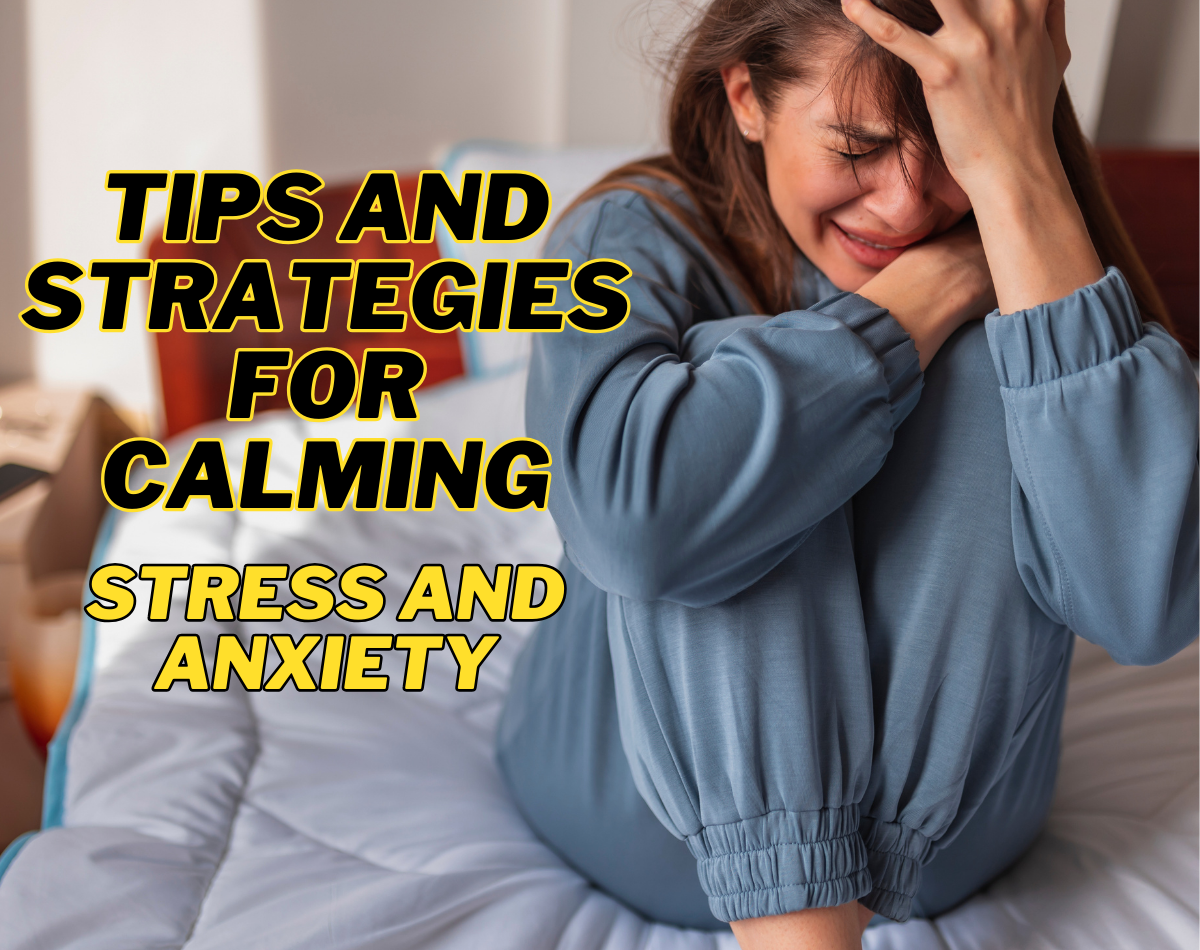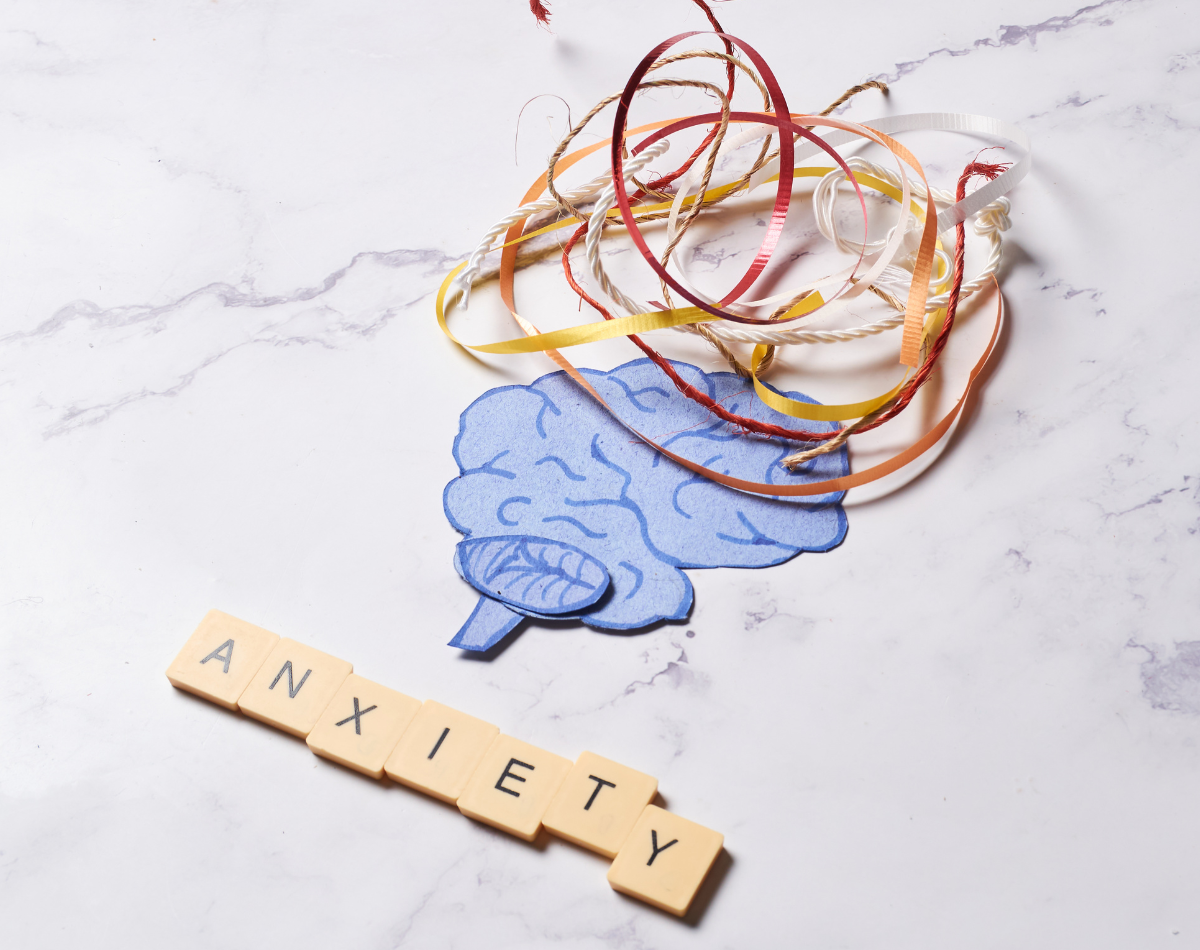The modern world is characterized by its rapid speed and its reliance on digital technology; consequently, anxiety has become an ever-present companion for many people. The relentless demands of a job, the constant influx of information, and the pressure to satisfy the expectations of society can combine to produce a perfect storm of pressures. A holistic strategy that incorporates self-awareness, mindfulness, and intentional alterations to one's lifestyle is very necessary in order to effectively manage anxiety and depression in the modern world.
Understanding Modern Anxiety Naturally
The phenomenon of modern anxiety is complex and multifaceted, and it is tightly woven into the fabric of our everyday lives. In addition to the never-ending chase of achievement, the continual connectedness provided by cellphones and social media has contributed to the development of a culture that is characterized by constant comparison and an unattainable desire for perfection. There are a number of factors that contribute to the ever-increasing frequency of anxiety disorders. These factors include the fear of missing out (FOMO), information overload, and the pressure to excel in various aspects of life.
Mindfulness and Self-Awareness for Calm and Reducing Anxiety
Building up one's own self-awareness is the initial stage in the process of managing with anxiety. By gaining an understanding of the triggers and recognizing the patterns of anxious thoughts, individuals can have the ability to recover control of their anxious thoughts. The practice of mindfulness, which consists of being present in the moment without passing judgment on it, is an effective method for cultivating self-awareness. Breathing exercises meditation, deep breathing, behavioral therapy and body scans are all techniques that can help anchor the mind in the present, which can help break the cycle of feel anxious that it has been stuck in.
Creating Digital Boundaries to Help Reduce Anxiety
However, despite the fact that they offer an unprecedented level of connectivity, our digital devices may also be a substantial source of anxiety. It is possible for the mind to become overwhelmed by the constant onslaught of messages, emails, and updates from social media. When it comes to controlling anxiety in today's modern environment, establishing digital boundaries is really necessary. A healthy relationship with technology can be created by establishing "tech-free" zones and setting specified hours for checking emails and social media. This allows for moments of relaxation and mental refreshment, which all contribute to a healthier relationship with technology.
Strategic Time Management Will Help Ease Anxiety
The modern world frequently requires individuals to simultaneously juggle a number of different duties. When it comes to lessening anxiety, time management becomes an extremely important ability. One way to avoid the sensation of being overwhelmed is to organize chores according to their priority, divide them into manageable portions, and establish goals that are attainable. In order to prevent overcommitting oneself and to ensure that enough relaxation and enjoyment are available, it is vital to acknowledge one's own limitations.
Nurturing Physical Activity Helps to Calm Anxiety
In order to treat anxiety effectively, one must take good care of their physical health because the mind and body are intricately connected. Regular exercise has been shown to be effective in reducing anxiety because it releases endorphins, the body's natural mood enhancers. Including physical activities like yoga, running, or walking into one's routine can have a big impact on one's mental health. Additionally, maintaining a balanced diet, staying properly hydrated, and getting enough sleep are all important components of overall wellbeing.
Cultivating a Support System for Stop Anxiety Growth
Because we live in a digital age, genuine human connection may not always be as important as it once was. The establishment and upkeep of a solid support system is an essential component of effective anxiety management. It is possible to receive emotional support and a sense of belonging by having a network of friends, family, or support groups. This network can be established by face-to-face encounters or through virtual connections. It can be encouraging and empowering to talk about your experiences with other people who may have been through something similar while also receiving guidance from them.
Embracing Imperfection to Help with Anxiety
In today's world, the desire of perfection frequently contributes to feelings of worry. Being able to accept one's imperfections and coming to terms with the fact that it is acceptable to not have everything figured out can be liberating. It is possible to cultivate a more compassionate and forgiving attitude toward oneself by first understanding that failures are an inevitable part of life and then setting reasonable goals for oneself.
Treatment for Anxiety Take Professional Guidance
It is a proactive and brave move to seek professional medical assistance when it comes to managing anxiety. Support groups, therapists, and counselors can all offer customized strategies and techniques for handling the circumstance. In specific situations, a prescription for medication may be written while being overseen by a mental health professional. Recognition of the fact that asking for help is a sign of strength and that mental health needs to be given the same priority as physical health is imperative.
FAQ's
What are common signs of anxiety and stress in current society?
Anxiety and stress can cause restlessness, irritability, muscle tension, concentration issues, and sleep difficulties. Rapid heartbeats, sweating, shaking, and gastrointestinal difficulties may also occur.
How can I manage my daily worry and stress effectively?
Individualized solutions are needed to manage anxiety and stress. Deep breathing, mindfulness meditation, regular exercise, a good diet, and enough sleep can alleviate stress. Support from mental health specialists or support groups may also help.
Can natural therapies or lifestyle modifications reduce anxiety and stress?
Many natural therapies and lifestyle modifications can reduce anxiety and stress. Practice relaxation techniques like yoga or tai chi, use soothing essential oils, reduce coffee and alcohol intake, avoid processed foods, and spend time in nature. Fun and relaxing hobbies can also be beneficial.
When should I seek professional help for anxiety and stress management?
If anxiety and stress interfere with daily life or persist despite self-help, professional intervention is needed. Panic attacks, overwhelming concern, difficulties regulating anxiety symptoms, and depression are other signals that professional help is needed. Mental health professionals can customize therapy and medicines.
How can anxiety be managed in certain contexts, such as exams or public speaking?
Several ways can help manage anxiety in stressful situations, like exams or public speaking. These include adopting relaxation techniques like deep breathing or visualization, breaking things into smaller pieces, confronting negative ideas with positive affirmations, and focusing on the present rather than the future. Friends, relatives, and mental health specialists can also offer comfort and advice.
Conclusion
Modern anxiety management requires dedication, self-reflection, and a willingness to change. People can find peace again by being self-aware, setting digital boundaries, managing time strategically, prioritizing physical well-being, nurturing a support system, accepting imperfections, and seeking professional help. In an overwhelming world, our choices and intentional steps toward mental well-being can help us manage anxiety.
In today's fast-paced world, managing anxiety is crucial to mental health. Understanding anxiety symptoms and stress triggers helps people manage stress and anxiety. There are many ways to reduce stress and anxiety, from cognitive behavioral therapy to essential oils and guided imagery. Understanding the value of mental health professionals and support networks is crucial to managing anxiety. Consulting a mental health professional or confiding in a friend or family member can help manage worry and stress.
Lifestyle changes like regular exercise, healthy eating, and enough sleep can improve health and reduce anxiety. Processed food avoidance and natural stress management like walking or mindfulness can also reduce anxiety. Don't forget that worry and stress can affect anyone, regardless of age or background. Understanding the relationship between anxiety and depression or panic disorder can help people manage their mental health.
In conclusion, by using effective strategies and seeking support, people can learn to control worry and stress, improving their mental health in the modern world.






